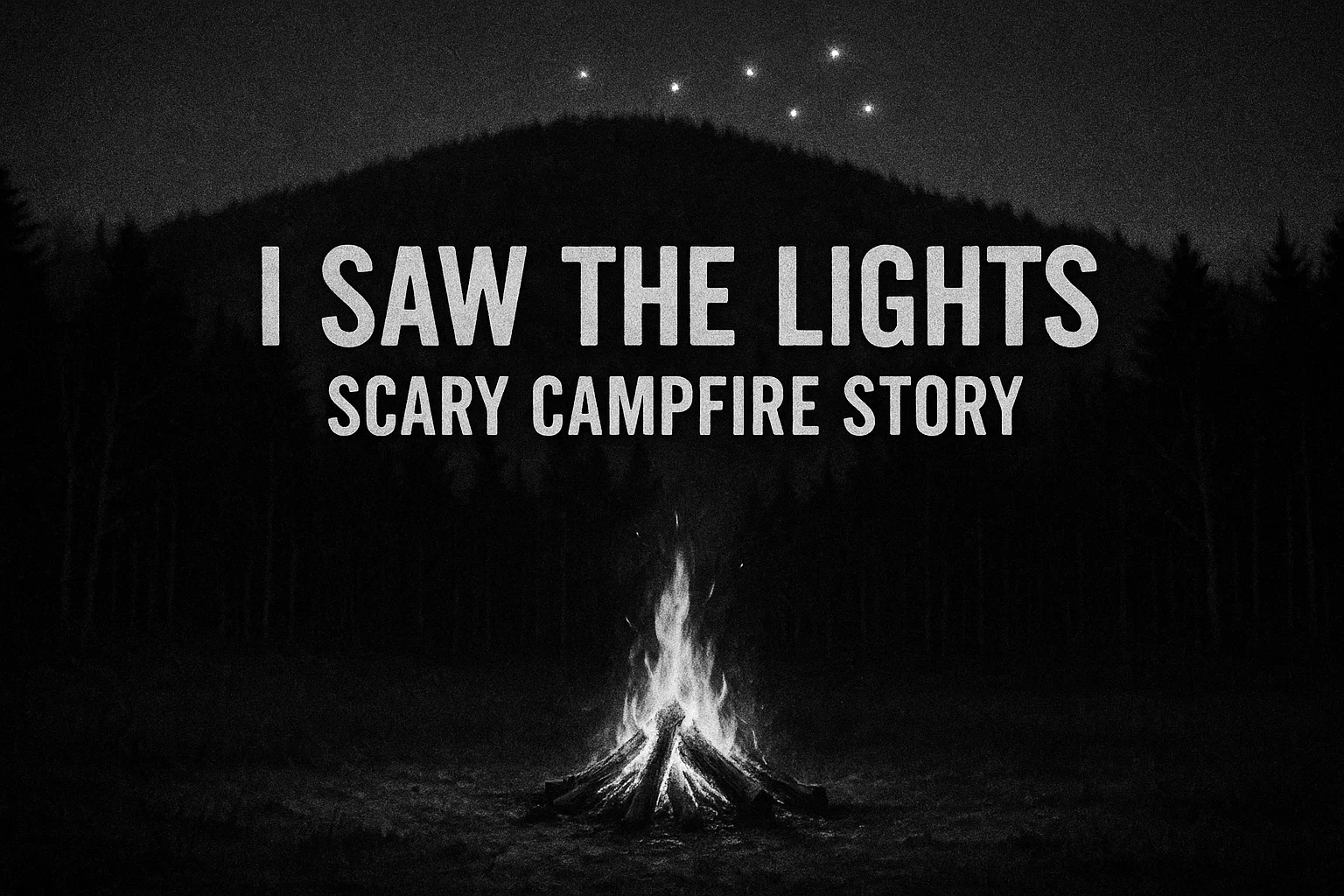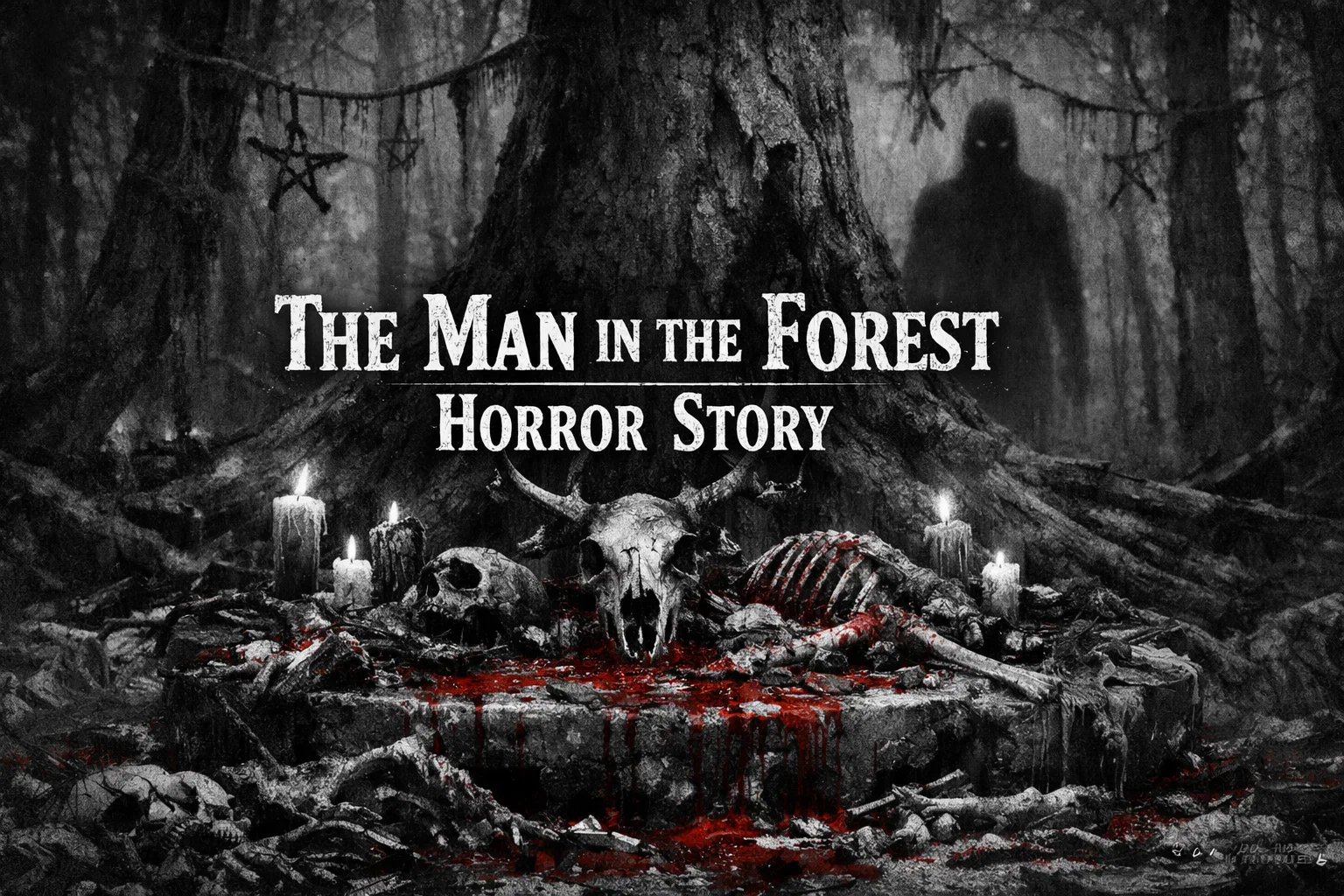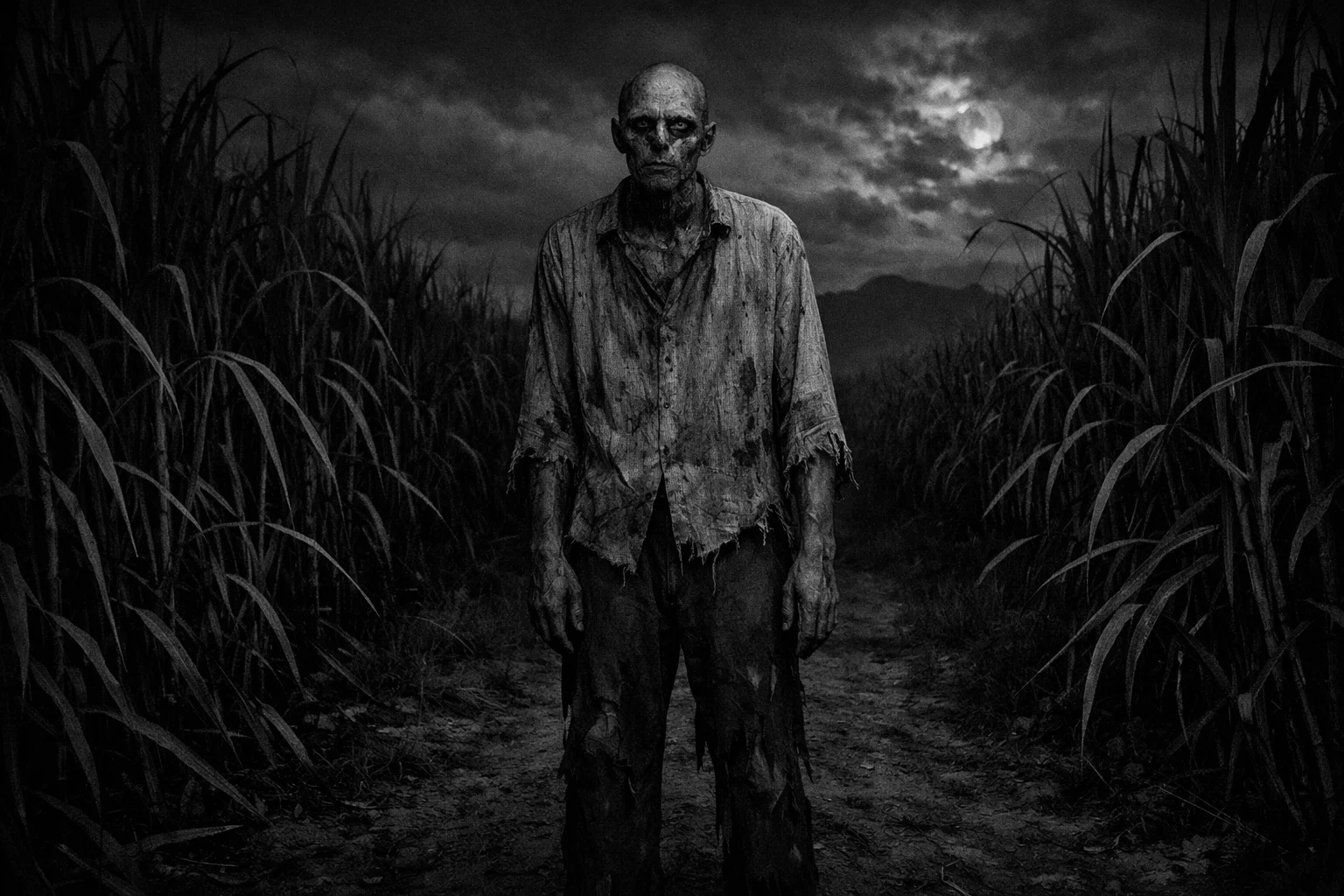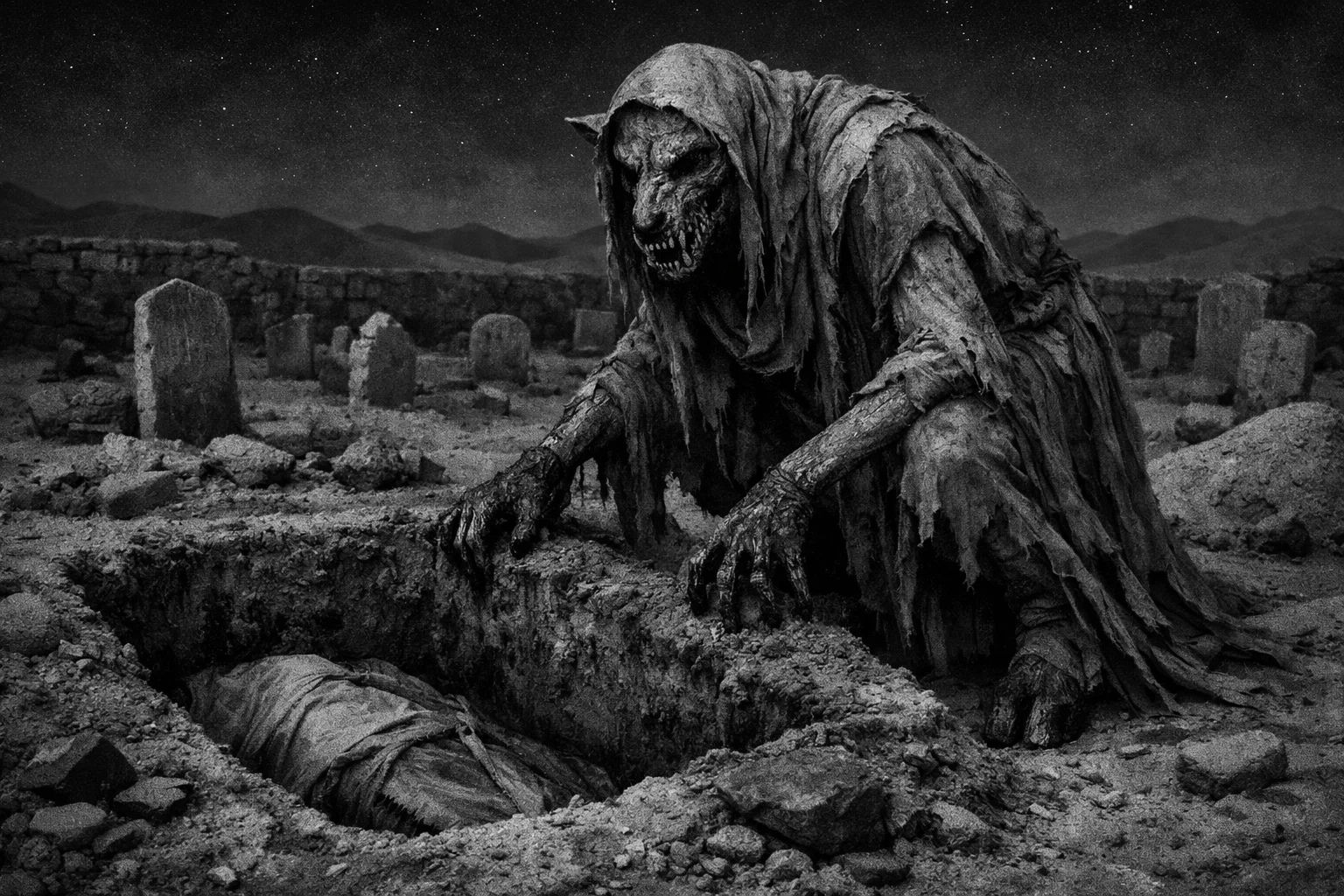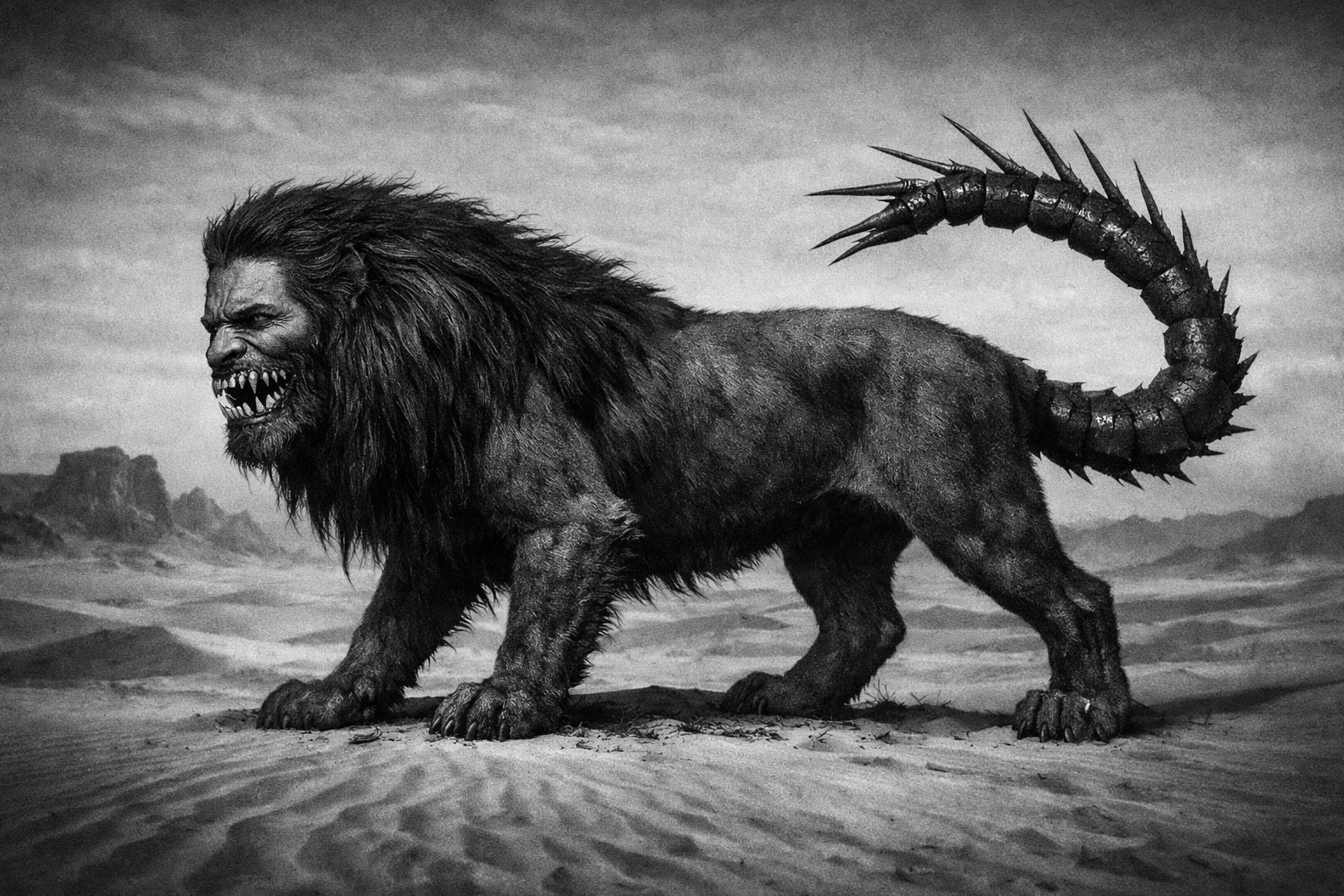In “I Saw the Lights,” a seasoned camp counselor in the vast wilderness of Algonquin Park captivates Junior High kids with terrifying campfire stories under a moonlit sky, only to face a chilling mystery of their own.
After spinning stories of woodland stalkers and abandoned asylums, the counselor spots some mysterious golden orbs dancing atop distant cliffs, their numbers growing in the still night. With a forced calm, they rally the sleepy campers for a sudden midnight run to safety—but what are those lights, and what unspoken horror drives their urgent escape?
For several summers, I worked as a camp counselor at an overnight camp in the Muskokas. It was my favorite job, despite the meager pay, pesky campers, long hours, short nights, and subpar food.
The kids, mostly Junior High, were a handful, but their energy made it worthwhile. The best part was telling scary stories. Nothing beat sitting by a fading campfire, the air thick with pine and smoke, as wide-eyed kids clamored for the scariest campfire stories I knew.
I shared them all: the babysitter and the creepy clown statue, the driver and the creepy gas station worker, the woman with her licking dog. Each story drew gasps and nervous giggles, the firelight flickering across their faces.
The real magic happened on our overnight trips to Algonquin Park, a vast wilderness in Ontario spanning nearly 8,000 square kilometers. We’d spend days canoeing across crystal lakes, the water so clear you could see fish darting below.
At night, we’d gather around the fire, singing off-key, roasting marshmallows, and being as loud as the only people for miles could be. The kids loved it, and I loved the way the stories felt bigger out there, under the endless stars, with the forest pressing in close.
On this particular trip, we’d set up camp on the shore of a secluded lake, its surface like glass under a partial moon. Towering cliffs loomed across the water, their jagged peaks cutting into the night sky. We’d had a grueling day of canoeing, and the six kids—three boys and three girls, all around thirteen—were wiped out.
After dinner, I spun my best campfire stories: a woodland stalker with a face so terrifying it froze its victims, campers who stayed across the lake from a deserted asylum that wasn’t as empty as they thought, and a tale of a lost hiker whose cries for help lured others into the dark. I swore each one was true, leaning in close, my voice low and dramatic, as the fire crackled and the kids hung on every word.
“That’s it for tonight,” I said finally, standing and stretching. “Off to your tents. Big day tomorrow.”
The kids groaned but didn’t argue, too tired to protest. They shuffled to their tents, flashlights bouncing, while my co-counselor, Laura, gave me a weary nod and headed to her own tent.
I stayed behind, settling on a fallen log by the dwindling fire, the embers glowing faintly. Then, a flicker caught my eye. At the top of the cliffs, maybe a mile across the lake, a small light bobbed along the edge. It was golden, larger than a star, swaying gently in a small arc, like someone carrying a lantern.
I squinted, thinking it might be a hiker or a ranger, but the cliff was sheer, hundreds of feet high—too steep for a casual stroll. Another light appeared beside it, moving in sync with it. Then another. And another…
My stomach sank. I grabbed my bag, fumbling for my digital camera, and zoomed in on the lights. They were too far to make out details, but they weren’t flashlights or campfires. They pulsed faintly, almost alive. I counted them—fifteen. Then recounted. Sixteen. A seventeenth appeared as I watched.
“Oh no,”
I bolted to the tents. “Hey, everyone! Wake up. We need to move. Now!”
Rustling came from the tents, followed by seven confused faces peering out. Laura, her hair messy from sleep, looked both worried and furious.
“What’s going on?”
I forced my voice to stay calm. “I hate to do this, but the clouds look bad. A big storm’s coming. If we get stuck out here, it’ll wreck our trip.”
“Seriously?” Laura snapped, glancing at the clear sky. “We’re in the middle of nowhere. Where would we go?”
I pulled out a map and a flashlight, kneeling on the ground. “There’s a ranger station a few kilometers south.”
I traced the route with my finger, thanking whatever luck we had that it was reachable. “We can get there in a few hours if we move fast.”
The campers grumbled, rubbing their eyes. “Can’t we wait until morning?” one of the boys whined.
“No!” I yelled, my voice echoing over the lake. I caught myself and softened it. “Come on, let’s pack and go. I’ll tell a story on the way. My best one.” I forced a smile, though my lips trembled.
That got them moving. Within ten minutes, we’d packed the tents, loaded the canoes, and started trekking through the dark woods, guided by the weak beams of our flashlights.
Once we were moving steadily, I relaxed slightly and began my favorite campfire tale:
Long before European settlers arrived, the First Nations people roamed this land, migrating from Western Canada, tracking herds of buffalo and bison. When they reached Ontario, they split into smaller groups, each seeking their own territory.
Legend tells of a group of about twenty men, women, and children who passed through this area, searching for a new home. Though it was only late October, the weather turned harsh, and as they circled the lake, a brutal blizzard struck.
Within an hour, they were caught in blinding snow and freezing temperatures. Their clothes, meant for autumn, were no match for this cold, and there were no warm jackets back then. Still, they pressed forward. They had no choice.
As night fell, they reached a cliff overlooking a cold, choppy lake. They couldn’t stop—they’d freeze if they didn’t clear the cliffs. But with darkness and worsening snow, they could barely see.
An elder had an idea: using their last kerosene, he lit a lantern for each traveler to carry, not to see the cliffs, but to guide them along the narrow bluffs.
Led by the strongest man, the group started across. The wet, freezing snow soaked them to the bone. The biting wind chilled any exposed skin and threatened to shove them off the rock. The path was barely a few feet wide, slick even for modern boots, let alone their handmade moccasins. Slowly—agonizingly—they climbed, praying for shelter beyond the cliffs.
Halfway up, hundreds of feet above the lake, they could see only the lantern ahead, a beacon guiding their steps. If it rose, they climbed. If it dipped, they descended. Each traveler was almost entranced, their focus entirely on the glowing orb.
The leader, however, had no such guide. He moved blindly, feeling the cliff with his free hand, though his numb fingers felt little. As the path curved, he misstepped, and a gust of wind hit his back. He clawed for a hold, but his frozen hands failed. With a scream, he slipped off the cliff and plunged into the icy lake.
The others didn’t see him fall. They only saw his orb vanish into the dark. There was no time to grieve. They pressed on, but the storm worsened. A minute later, a child, too cold to continue, fell, his lantern snuffed out by the waves. Another, seeing this, lost balance and fell too.
One by one, they dropped until only five remained, stumbling forward, following the light ahead.
The cliffs were merciless. The group dwindled to four, then three, then two. Finally, only one remained, who, legend says, cursed the land as he slipped and fell, his lantern the last to fade.
“Of the twenty who tried to cross the cliffs,” I concluded, “none survived. They say when conditions are right, you can see their orbs along the cliff, signs of the lost travelers who never found home.”
The horror story ended, leaving the campers in eerie silence. Then I saw lights ahead. Relief flooded me. We hurried toward the ranger station, buzzing with activity—people loading trucks, shouting into radios. The wind was picking up, and thunder rumbled in the distance.
“Hey! You kids!” A burly man with a thick beard ran up. “Get in the trucks! We’re running out of time!”
Laura and I herded the kids to a pickup truck. “What’s happening?” I asked.
“Haven’t you heard?” Another gust hit. “A huge storm’s coming. Tornadoes have already touched down. We’re evacuating everyone. Move!”
We climbed into the truck bed. I sank, feeling gut-punched. The ranger got in the cab, and we sped down a rough road. My head spun. It couldn’t be…
“How…” Laura slid beside me, whispering. “How did you know we had to leave?”
I looked at her, my face drained. “I saw the lights.”
“What? No. No!” She gasped, then lowered her voice. “How many?”
I took a shaky breath. “Eight.”
She glanced at the campers, now slumped against each other, asleep despite the jolting ride. “That’s all of us. My God…”
I nodded and leaned against her. Laura knew the travelers’ story and that I’d omitted a crucial detail. The lights were real, but they weren’t random. When they shone—swaying in small arcs—they carried a warning.
One light for each person doomed to die.

